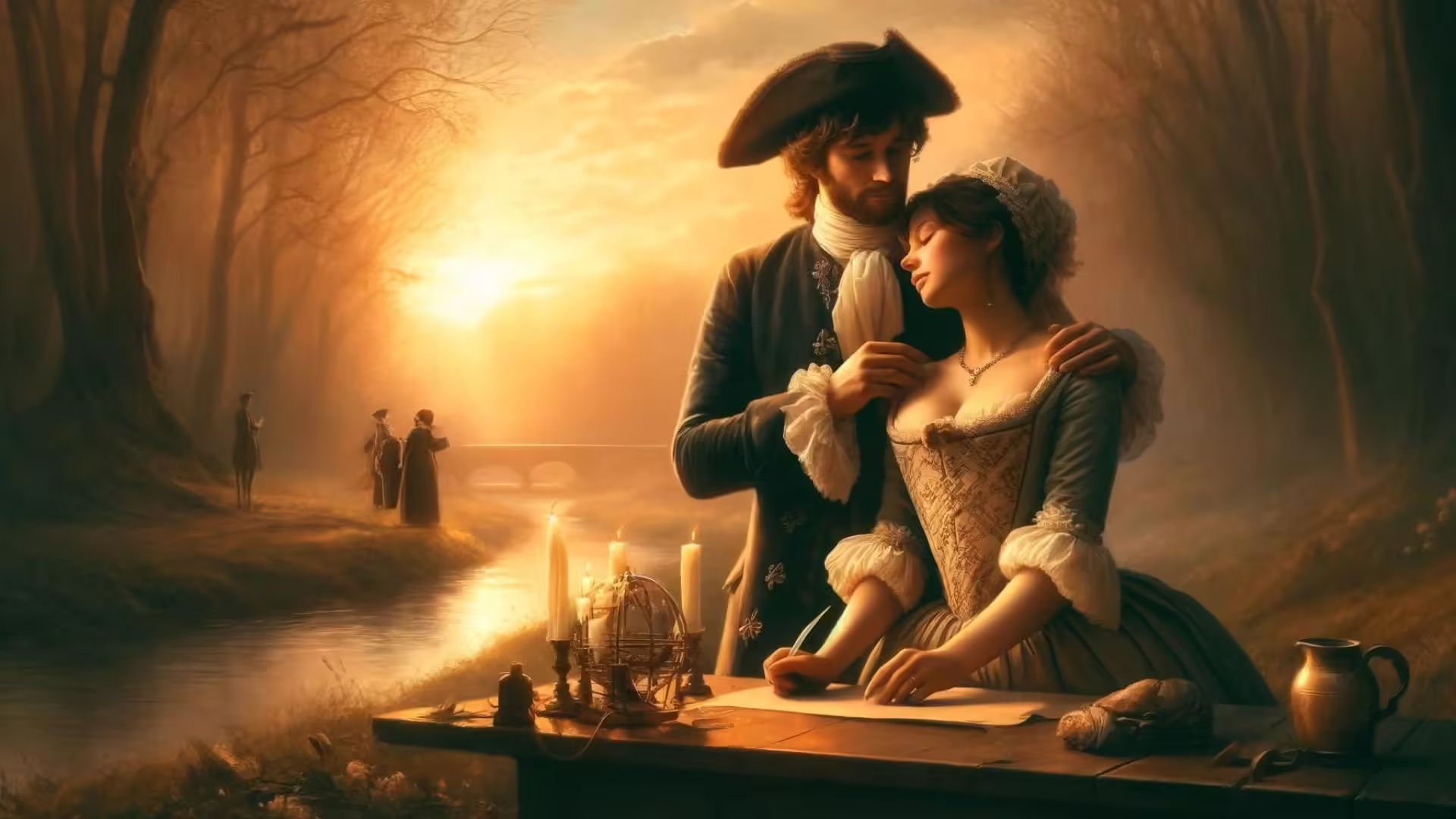Andrew Marvell’s “To His Coy Mistress” is a celebrated poem that delves into themes of love, time, and mortality. Written in the 17th century, this metaphysical poem has captivated readers for generations with its eloquent language and profound messages. In this article, we will explore the poem’s themes, structure, and lasting impact, offering a thought-provoking analysis of Marvell’s timeless meditation on the human condition.
To His Coy Mistress | By Andrew Marvel
Had we but world enough and time,
This coyness, lady, were no crime.
We would sit down, and think which way
To walk, and pass our long love’s day.
Thou by the Indian Ganges’ side
Shouldst rubies find; I by the tide
Of Humber would complain. I would
Love you ten years before the flood,
And you should, if you please, refuse
Till the conversion of the Jews.
My vegetable love should grow
Vaster than empires and more slow;
An hundred years should go to praise
Thine eyes, and on thy forehead gaze;
Two hundred to adore each breast,
But thirty thousand to the rest;
An age at least to every part,
And the last age should show your heart.
For, lady, you deserve this state,
Nor would I love at lower rate.
But at my back I always hear
Time’s wingèd chariot hurrying near;
And yonder all before us lie
Deserts of vast eternity.
Thy beauty shall no more be found;
Nor, in thy marble vault, shall sound
My echoing song; then worms shall try
That long-preserved virginity,
And your quaint honour turn to dust,
And into ashes all my lust;
The grave’s a fine and private place,
But none, I think, do there embrace.
Now therefore, while the youthful hue
Sits on thy skin like morning dew,
And while thy willing soul transpires
At every pore with instant fires,
Now let us sport us while we may,
And now, like amorous birds of prey,
Rather at once our time devour
Than languish in his slow-chapped power.
Let us roll all our strength and all
Our sweetness up into one ball,
And tear our pleasures with rough strife
Through the iron gates of life:
Thus, though we cannot make our sun
Stand still, yet we will make him run.
Overview of the Poem
“To His Coy Mistress” is a carpe diem poem, a literary genre that encourages readers to “seize the day.” Marvell addresses the poem to his mistress, urging her to overcome her coyness and embrace the pleasures of love before time runs out. The poem is divided into three sections, each presenting a different argument in Marvell’s persuasive discourse.
Analysis of Themes
The Transience of Time:
- Time is a central theme in “To His Coy Mistress.” Marvell begins by imagining a scenario where time is infinite, allowing the speaker and his mistress to enjoy a slow, leisurely courtship. He writes, “Had we but world enough, and time, / This coyness, lady, were no crime.”
- This idyllic vision is quickly shattered as the speaker confronts the reality of time’s relentless passage. He reminds his mistress that their youth and beauty are fleeting, and they must act before it is too late. The stark imagery of “Time’s winged chariot hurrying near” underscores the urgency of his plea.
The Impermanence of Beauty:
- Marvell explores the impermanence of physical beauty and the inevitability of aging. He uses vivid, even morbid, imagery to highlight the consequences of delaying love. The speaker warns that if they wait too long, her “beauty shall no more be found” and that “worms shall try / That long-preserved virginity.”
- This reflection on mortality and decay serves as a powerful reminder of the need to embrace life’s pleasures while they can still be enjoyed.
Carpe Diem and the Pursuit of Pleasure:
- The carpe diem theme is at the heart of Marvell’s argument. The speaker urges his mistress to seize the moment and indulge in their love before time and age take their toll. He advocates for a passionate, immediate response to their desires, suggesting that they “roll all our strength and all / Our sweetness up into one ball.”
- This hedonistic approach is tempered by the poem’s recognition of life’s brevity, making the pursuit of pleasure both a defiant act against time and a celebration of human experience.
Structure and Literary Devices
Marvell’s use of structure and literary devices enhances the poem’s persuasive power and emotional impact.
Rhyme and Meter:
- The poem is written in iambic tetrameter, a rhythmic structure that creates a sense of urgency and momentum. The rhyming couplets contribute to the poem’s musical quality, making it both engaging and memorable.
Imagery and Symbolism:
- Marvell employs rich imagery and symbolism to convey his themes. The “wingèd chariot” represents the swift passage of time, while the “deserts of vast eternity” evoke the bleakness of a future without love. These images reinforce the speaker’s argument and add depth to the poem’s exploration of mortality.
Paradox and Irony:
- The poem’s use of paradox and irony highlights the tension between the ideal and the real. While the speaker fantasizes about endless time, he is acutely aware of its limits. This contrast between infinite desire and finite existence adds a layer of complexity to the speaker’s plea.
Lasting Impact and Influence
“To His Coy Mistress” has had a lasting impact on literature and continues to resonate with readers today. Its exploration of timeless themes such as love, time, and mortality makes it relevant across generations. The poem has influenced countless writers and poets, inspiring works that grapple with similar existential questions.
Andrew Marvell’s “To His Coy Mistress” is a masterful exploration of love and the human condition. Through its eloquent language and profound themes, the poem urges readers to seize the day and cherish the fleeting moments of beauty and passion in life. Marvell’s meditation on time and mortality remains a powerful reminder of the preciousness of life and the importance of living fully in the present.
By examining the poem’s themes, structure, and lasting impact, we gain a deeper appreciation for Marvell’s artistry and the enduring relevance of his message. “To His Coy Mistress” stands as a testament to the power of poetry to capture the complexities of human experience and inspire reflection on the most fundamental aspects of existence.











0 Comments